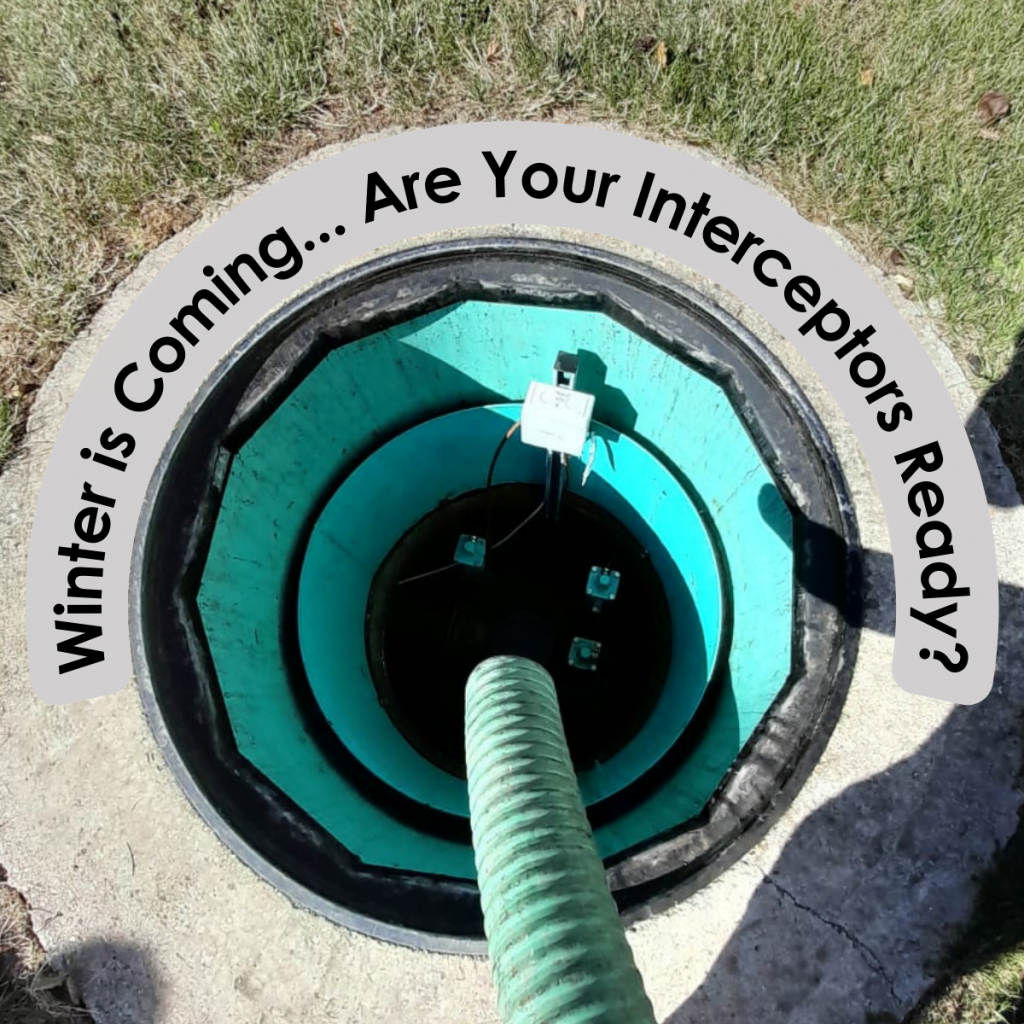
Winter is Coming – Are Your Interceptors ready?
If you’re wondering what to look out for, keep reading – we’ll give you 3 quick tips on how to look after your fuel-water separators and save you the headache!
As the temperature drops and the days become shorter approaches, businesses are starting to prepare their facilities for the challenges that come with cold weather. An essential aspect of these preparations that occasionally gets underestimated and overlooked, is the maintenance and upkeep of a hazardous site’s water-oil separators, commonly known as interceptors. In case you are storing fuel or other hazardous materials on your property, you need to keep your interceptors compliant and effective all year round – but this could be particularly challenging in the winter months.
What are interceptors?
Interceptors separate the oil and grease from the wastewater, stopping these contaminants from entering the sewer system and becoming an environmental hazard. In winter, due to the danger of freezing, these critical components are more vulnerable to ice buildup and blockages.
-
Up-to-date inspections and regular cleaning
Intuitively, your interceptors’ regular inspections and cleaning should be scheduled all year round. However, it is particularly important to not miss them during the winter months. When temperatures drop, oil and grease solidify, which can cause issues when the interceptor tries to separate them from the wastewater. What’s more, below-zero temperatures can lead to ice buildup inside the interceptor, blocking it.
-
Proactive maintenance
To make sure your interceptors are working as they should be, you have to stop them from freezing and getting blocked. Being proactive, you should schedule a thorough inspection of your interceptors before the winter months have arrived – ensuring they are free of debris and sediment buildups.
Any repairs that need to be done should be completed before the winter sets in, to optimally reduce the risk of an environmental hazard when the temperatures drop. You can contact us for further details and costs – we are always happy to help!
-
Have an Emergency Response Plan in place
As they say, better safe than sorry! Things happen, and sometimes, despite your best efforts, spills happen. To be on the safe plan, you can work with our spill response team to develop a comprehensive emergency response plan for your separators in case of any blockages, freezing or interceptor failure. This includes protocols for addressing emergencies, our emergency lines and response times and a schedule for regular maintenance and inspections.
PS: Our Spill Response Agreement is on a pay-when-you-use basis! Contact us to find out more!
Preparing your fuel-water separators (interceptors) for winter is a crucial part of facility maintenance and environmental compliance. Regular inspection and cleaning, proper maintenance, and an emergency response plan are essential components of getting your site ready for winter. By taking these steps, you can ensure that your interceptors continue to operate effectively, prevent environmental harm, and avoid costly emergency repairs during the cold months.
Don’t wait until winter is in full swing; start your winter preparation efforts to safeguard your facility’s environmental infrastructure.
To have us inspect your interceptors and recommend an appropriate course of action, you can find our team at…
T: 0808 164 4570

